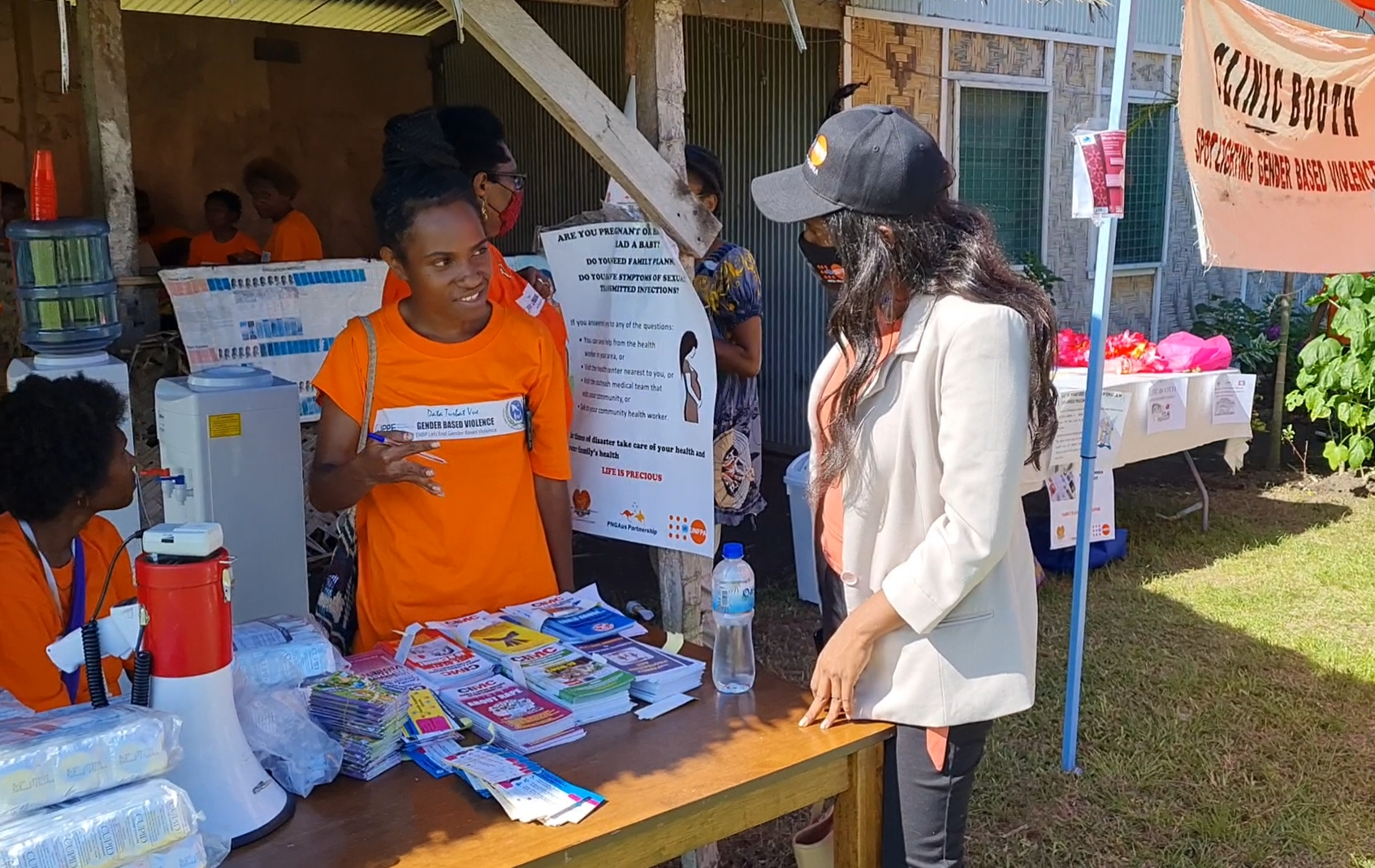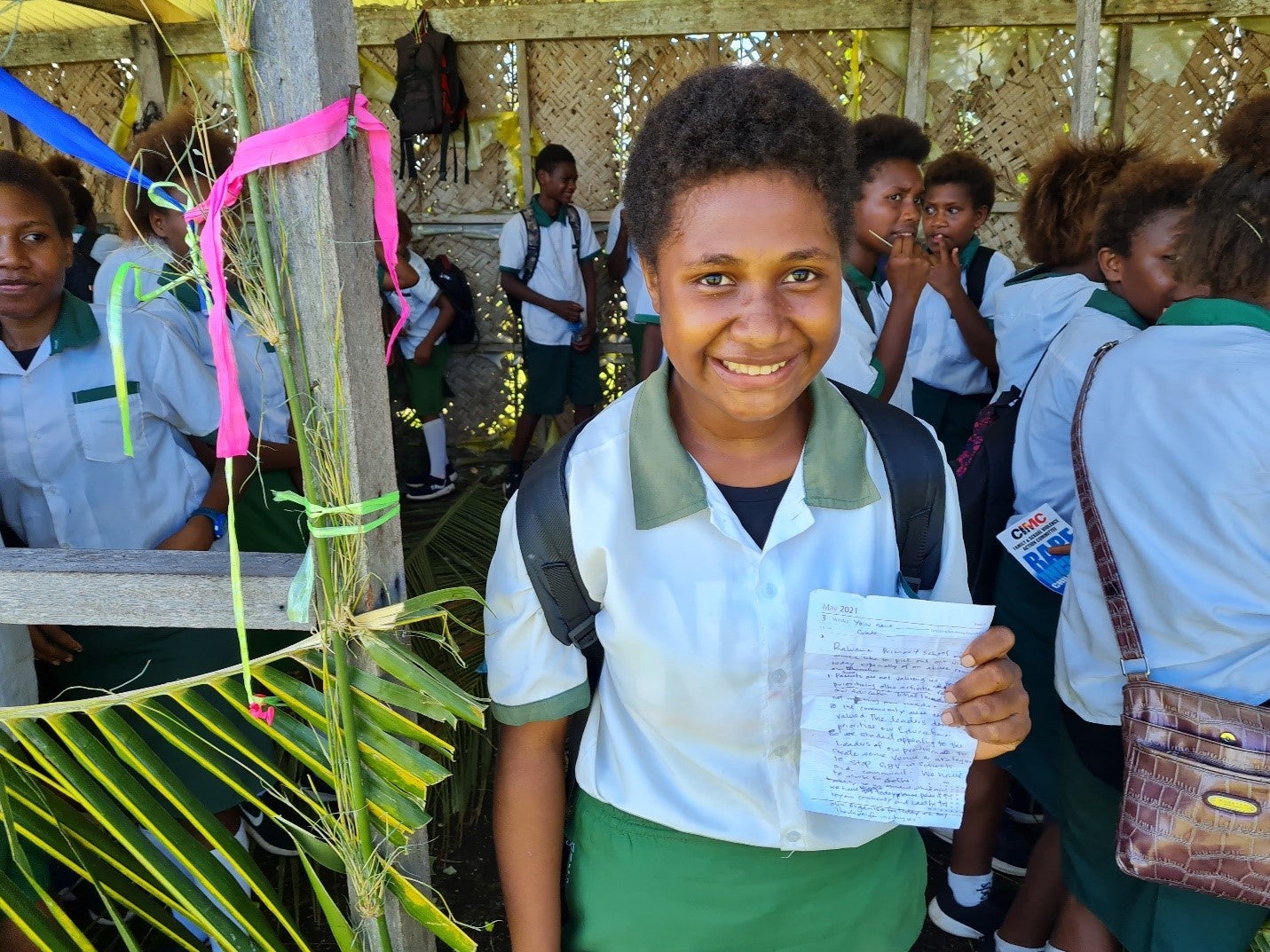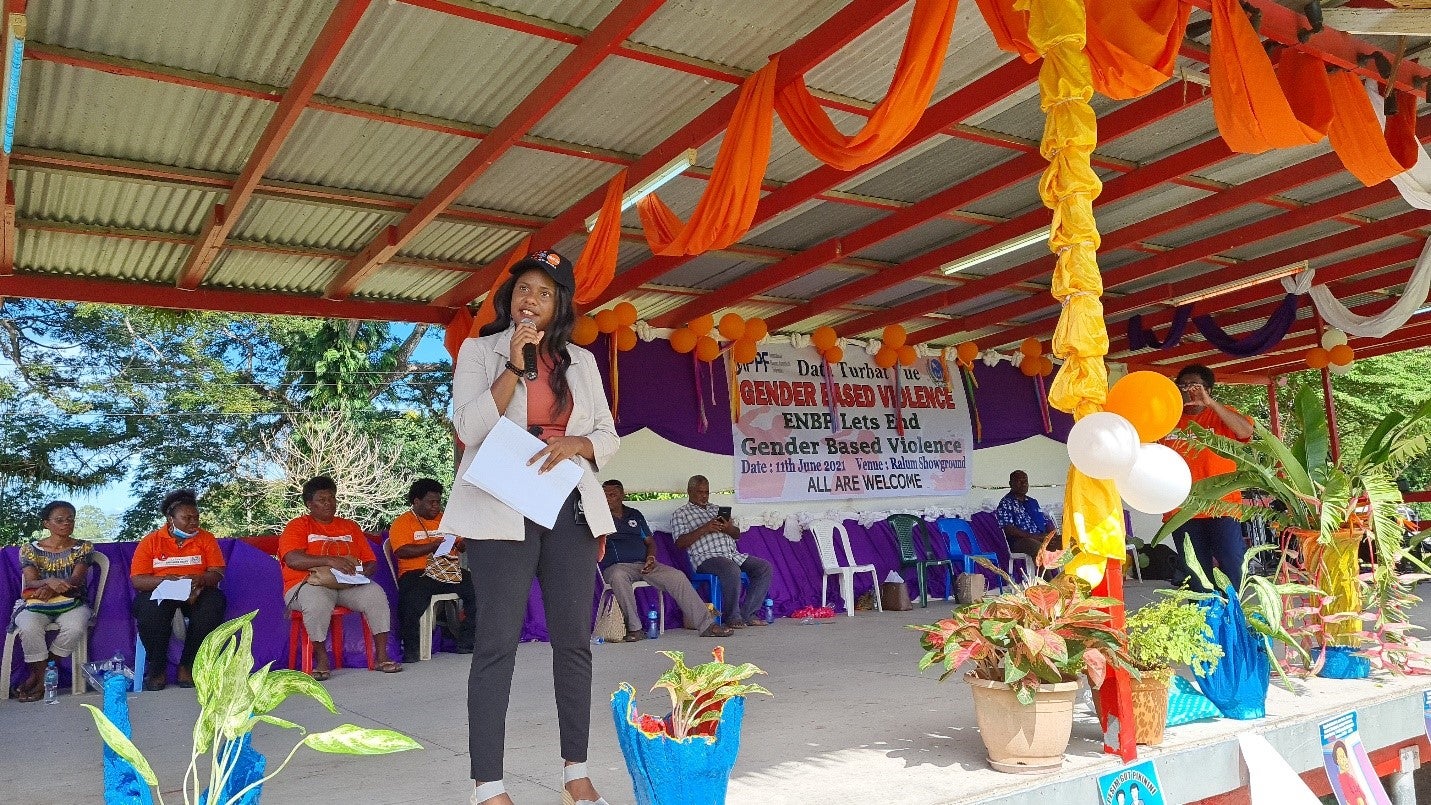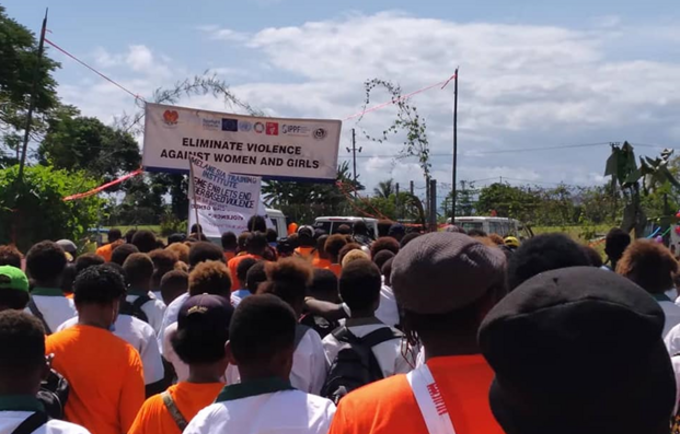Recently in Kokopo, a man beat his young girlfriend to death after she told him she was pregnant with his baby. A lot of young girls continue to die of Gender-Based Violence complications. Countless similar stories have triggered the UNFPA to launch the campaign to End violence against women and girls in partnership with Family Health Association in Papua New Guinea. The campaign is called ‘DATA TUR BAT VUE’ in Kuanua, the main language in Kokopo, East New Britain, Papua New Guinea.
‘‘The stories of these girls and women are unfortunately not exceptions’’, says Bjorn Andersson, Regional Director of UNFPA in Asia and the Pacific, in his op-ed published by malaytimes, ‘‘All around Asia-Pacific and globally, millions of women and girls simply have no control over their bodies and their lives. The new UNFPA State of World Population report, My Body is My Own, indicates in the eight Asia-Pacific countries where data on these three issues are available, only about 59 per cent of women are fully empowered in this regard.
The campaign relates to challenges faced by women and girls in Sexual and Reproductive Health services. Primrose Famane, a 23-year-old Youth Nurse and Youth Center Officer said “evidence shows many young pregnant girls face violence from their male partners when they inform them of their visits to the facilities. She called for more capacity building on peer education on SRH and GBV to effectively combat the challenge. All of us have a fundamental right to make our own decisions about our bodies, the Regional Director of UNFPA in Asia and the Pacific says, “but how many women can actually claim they have the power to exercise that right? he asks.
The launching of the campaign was joined by over 600 participants with the presence of Hon. Jelta Wong, Minister for Health and Member for Gazelle District, Nellie McLay, President of Family Health Association (FHA) in Papua New Guinea, Provincial Dignitaries, UNFPA, Representatives of Youth Groups and Women’s Groups from churches, school youths, teachers and other partners. Out-of-school youth and the general public were also in attendance.

Primrose Famane, Nurse and Youth Center Officer (center) explaining FHA offered services at the youth center and disseminating IEC materials. Photo: UNFPA/Fitsum
Youth stalls, IEC (Information Education Communication) messages disseminated and condoms were distributed to attendees. Communities were also encouraged to use the FHA Clinic and the Youth Center; which were established with the support of EU-UN Spotlight Initiative last year. Awareness raising programs were also held in the areas of Sexual and Reproductive Health (SRH), and Sexual and Gender Based Violence (SGBV), Family Planning, HIV & AIDS, Maternal Health, and issues related to SRH. Bjorn highlights the benefits of these facilities as indispensable and said there should be an end to the ‘terrible bargain made to exchange unwanted sex for a home and food, the life-derailing practices such as child marriage and gender-biased sex selection, all of which are witnessed to varying degrees in Asia-Pacific.
The event was also used to provide COVID-19 vaccine jabs at Clinic Booths. The vaccines were made available through the Provincial Health Authority of the East New Britain (ENBPHA).
Other key highlights of the event were the 30 minutes street march by students who carried SRH slogans, speech contest, drama and entertainment by a live music band. The campaign is supported with Australian Aid’s (DFAT’s) emergency response.
Dora Maira, a 16 year-old winner of the young students' speech contest on Sexual and Reproductive Health and Sexual and Gender-Based Violence campaign said, "Students are appealing to the leaders to create a venue to stop GBV in schools and communities.”

Dora Maira, winner of the young students' speech contest from Rawana Primary School, Kokopo, East New Britain. Photo: UNFPA/Fitsum
"We are not born violent. We are not born with negative attitudes and behaviors that reinforce or contribute to allowing violence to thrive. It is behavior that is learnt and as young people (young leaders) we must have the courage to unlearn negative attitudes and behaviors that hinder our progress and choose positive attitudes and behaviors that will benefit us as individuals, our communities and PNG." Bronwyn Kili, Young Ambassador, UNFPA.

Bronwyn Kili, Young Ambassador delivering speech to the youth and all participants at Ralum Showground in Kokopo, East New Britain. Photo: UNFPA/Fitsum
The regional director called for real, sustained progress at the grassroots level to uproot gender inequality and all forms of discrimination and transform the social and economic structures that maintain them. He also encouraged men to become allies and ‘‘commit to stepping away from patterns of privilege and dominance that profoundly undercut bodily autonomy.
While this Youth Campaign was made possible through the support of the Australian Aid’s (DFAT) Emergency response, the establishment of the Youth Center and the peer educators is funded by the EU-UN Spotlight Initiative.

